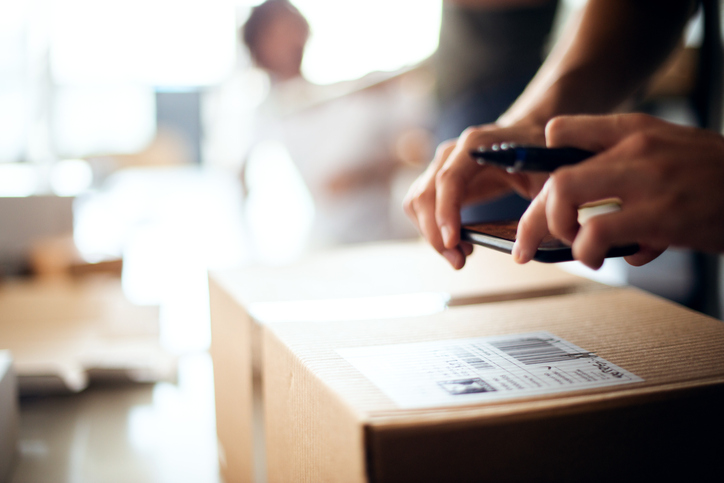Products delivered to the customer’s doorstep within minutes will soon be the new norm, writes Brenton Gill.
Imagine purchasing a product online and it arrives to you faster than if you had walked to the shops to purchase it. Sound too good to be true? Well, it soon won’t be. Store-based delivery is on the rise and its journey to becoming the new norm is imminent.
As more brands take the necessary steps to streamline the path to purchase, a crucial focus is being placed on last mile delivery as retailers seek to continually remain at the forefront of progressive and new brand strategy.
Fundamentally, ‘on sale’ items are no longer the only draw card for customer loyalty with convenience and fulfilment now leading the charge. As a result, retailers are fighting for survival and are needing to adopt necessary technology and logistics to fit the modern-day consumer needs.
We are now living in a world where we can track and streamline products and service deliveries, or are at least expected to. From pizza to Uber and even flights, customers are turning up the heat on what they want from these services and businesses need to realise this is imperative if they are to remain competitive in the market.
So, as a multitude of brands turn to technology to build brand equity and customer loyalty in the last mile delivery space, what is forecast for its growth and success?
New industries to tackle last mile delivery
It must be said that any business that is focused on providing an enhanced customer experience and convenience is already winning the last mile delivery space.
However, there is still so many sectors yet to leverage technology to assist with customer satisfaction. It’s no longer just tracking the delivery of a product, but more so what happens once the package arrives.
Take for example the delivery of an appliance. Brands nowadays are connecting trade services to retail distribution as a means of enhancing the customer accountability and experience. Not only does your fridge get delivered, it gets installed and set up by the same courier for no extra cost.
If we look overseas at FedEx, they are testing new last mile delivery services including a ‘standard’ service, whereby shipments are delivered to a residence’s first point of entry, while ‘premium’ service includes a white glove treatment; unpacking boxes and assembling products.
Retailers have the last mile delivery space down pat and food is also making great strides, following Uber’s ownership of real-time trackable food deliveries. It’s only a matter of time to see if other industries such as healthcare, insurance and banking join the digital revolution of customer satisfaction.
Forecast trend for last mile technology
Keeping abreast of even the smallest details in last mile delivery space can be the biggest asset in helping brands stand out from their competitors, particularly as store-based delivery hits the forefront in coming years.
So, that package arriving to you faster than visiting the store yourself? Store-based delivery will enable this. Traditionally most retailers dispatch their products from a distribution centre which can ultimately slow down the delivery speed.
What is holding most companies back is access to the technology that would enable store-based fulfilment. Amazon is a huge threat to the retail landscape with their unwavering dedication to customer experience and satisfaction. Afterall, Jeff Bezossaid Amazon’s goal is to be Earth’s most customer-centric company.
The company is achieving this by investing heavily in its logistics, from planes, vans, drones, sidewalk robots and more, but how can smaller businesses compete? Luckily for them, last-mile technology is available.
Long-term benefits of investing in last mile delivery technology
Businesses who are evolving their brand through last mile delivery technology are welcomed with long-term benefits to further build brand equity. This technology solves today’s problems and enables innovation for tomorrow’s strategy, acting as an enabler for brands to develop and craft their own imaginations and disrupt their own markets. It’s transformative for brands as it allows them to enter markets they’ve never been able to enter before.
To ensure Australia remains ahead of last mile technology, it’s imperative we keep a close eye on the US market to ensure our local companies are equipped with the necessary tools to roll out superior last mile delivery services.
The future’s looking bright for customers and their desire for transparency, speed, convenience and fulfilment when shopping online. And so too for brands, both big and small, who have the fervor for disrupting their own markets.
Brenton Gill is the Co-Founder and Managing Director of Radaro .

